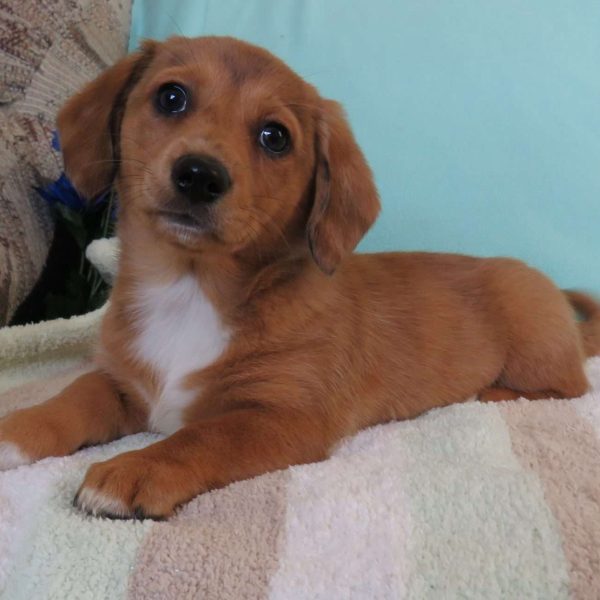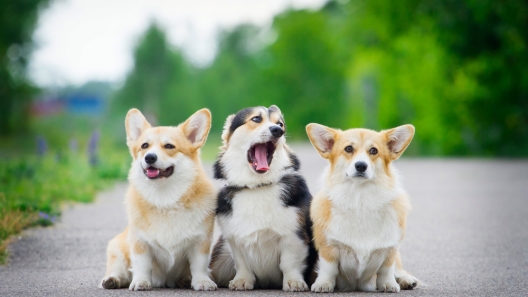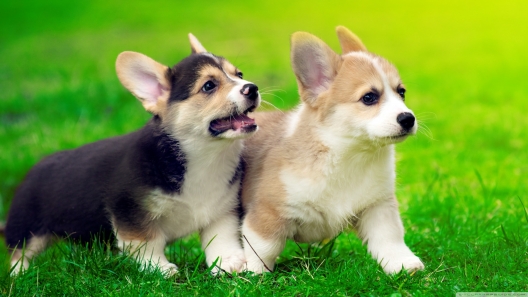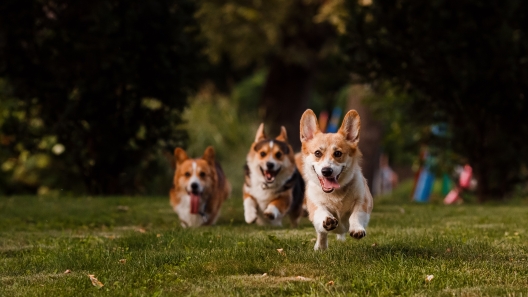
-
Activity Level:
moderate
-
Shedding Level:
low
-
Grooming Level:
low
-
Trainability:
high
-
Good for Novice Owners:
high
-
Adaptability:
high
-
Kid/Pet Friendly:
often
-
Prey Drive:
low
-
Watchdog:
very alert
- Average Size: Small
- Average Lifespan: 12-15 years
- Registered?: other
Dorgi Dog Breed Information
Overview
Temperament
Adaptability
Health
Owner Experience
Grooming
Activity Level
Size
Life Span
The Dorgi is a cross between a Dachshund and a Corgi. Their appearance may vary slightly depending on which of their parents they take after more, but Dorgis tend to be social, friendly, energetic, intelligent, and loving dogs that make a great family pet. Although their precise origins are unknown, we do have a few “origin stories” about the Dorgi.
Queen Elizabeth II is one of the most prominent Corgi supporters, but did you know Her Royal Highness is also fond of Dorgis? As the story goes, one of the Queen’s Corgis mated with Princess Margaret’s Dachshund, and a littler of Dorgis was born. After that, more Dorgis were bred and the designer breed started to catch on across the world.
Although they are not recognized by the American Kennel Club, they are recognized by other notable dog organizations. The Designer Breed Registry, American Canine Hybrid Club, Designer Dogs Kennel Club, and more all recognize the Dorgi.
Along with their adorable features, Dorgis also have great personalities. They are affectionate dogs that are devoted to their families, loyal to them, and bond closely with them. They are happiest being close to their favorite humans and getting attention from them.
These energetic dogs are playful, social, and friendly. They love having someone to play with and also tend to get along well with children, other dogs, and other pets. Although they are open and friendly, they will still bark to alert you of strangers, people, animals, etc. near your home. If left untrained or unmanaged, it can result in barking that becomes a nuisance.
The Dorgi is a highly adaptable dog breed. As long as they get enough attention, mental stimulation, and exercise, they are happy in apartments or larger homes with yards where they can run. They do well in most climates. As with any dog breed, they are sensitive to heat. And, because of their short stature, they may need some winter dog products to help them navigate the cold.
Because they bond closely with their families and love nothing more than being with them, they do not like to spend long periods of time alone. This also means they can be prone to developing separation anxiety, so you do want to implement some extra training and socialization when they are a puppy to help prevent it.
Potential health conditions to be aware of in a Dorgi include luxating patella, Legg-Calves-Perthes Disease, cataracts, and hip dysplasia. Reputable breeders will screen their dogs to avoid passing issues on to puppies. So, don’t be afraid to ask them about the health and genetic history of both of the parents. You can also ask to see any available health clearances or test results.
Because Dorgis, like their parent breeds, are longer than they are tall, they are prone to developing back issues, arthritis, and other joint issues as they age. By limiting high jumps, using ramps when you can, and keeping them at a healthy weight, you can help ease some of these issues in your Dorgi. As a small dog breed, Dorgis are also more prone to developing dental disease, so practicing good dental care for dogs throughout their life is important.
Dorgis are highly intelligent and eager to please. This means they pick up on things quickly and tend to be obedient, as long as they know what is expected of them. This tends to make them a good fit for owners of all experience levels.
They respond best to consistent training focused on positive rewards. Even if you don’t need them, puppy training classes can still be a good idea. Not only do they strengthen the bond you have with your puppy and help keep training consistent, but they also tend to offer opportunities to socialize a puppy.
A Dorgi tends to have a short wiry coat that sheds a little year-round. They shed a little bit more as the seasons change, but they won’t blow out their coat as double-coated breeds do. Weekly or twice-weekly brushing and the occasional bath are usually enough to keep a Dorgi’s coat looking great.
In addition to coat care, you will also need to care for your Dorgi’s nails, ears, and teeth. Cutting your dog’s nails regularly keeps them from getting too long and causing issues. Depending on how quickly your Dorgi’s nails grow, you may need to cut them monthly, twice a month, or more.
Weekly ear checks and carefully cleaning your dog’s ears as needed can help prevent ear infections. Your dog’s ears should be clean, dry, and free of debris or pests. If they’re not, then you know it’s time to clean them or it’s time to get to the vet.
Unfortunately, many dog owners overlook dental care, which is why gum disease is one of the most common health issues in dogs. But, gum disease in dogs is serious and often leads to more health issues, so you want to do whatever you can to help prevent it. Brushing teeth or using an enzyme toothpaste every day is ideal for preventing painful dental diseases later in life.
Although these dogs are energetic and will play hard, they are not a high-energy dog breed. The Dorgi tends to sit in a more moderate activity range. Daily walks plus some off-leash playtime where they can run are usually enough for this dog.
Trips to the dog park, chasing balls in a fenced area, and more can all be great activities for your Dorgi. And, since they love to be around you, they will likely be up for more activity if you are. Just make sure they aren’t overdoing it or straining their backs trying to keep up with you.
A fully-grown Dorgi usually stands 9-12 inches tall and weighs 15-28 pounds.
A Dorgi generally lives for 12-15 years.









